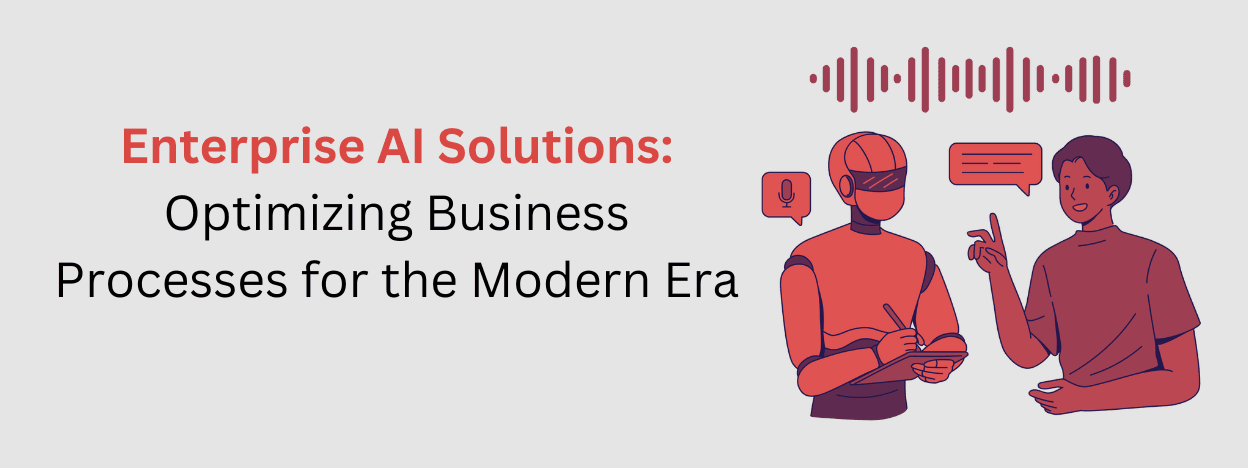Enterprise AI Solutions: Optimizing Business Processes for the Modern Era

In today’s rapidly evolving business landscape, efficiency, speed, and innovation define success. Traditional enterprise systems are no longer enough to keep up with growing data, complex operations, and changing market demands. That’s where Enterprise AI solutions come in — transforming how organizations operate, make decisions, and deliver value.
Artificial Intelligence (AI) is no longer a futuristic concept — it’s a strategic necessity for businesses aiming to stay ahead. From automating workflows to predicting customer behavior, AI-powered enterprise systems are reshaping operations across every industry.
1. Automating Repetitive Business Processes
One of the biggest advantages of Enterprise AI is process automation. AI can handle repetitive and time-consuming tasks like data entry, invoicing, and reporting with unmatched accuracy.
By integrating AI into enterprise software, organizations reduce human error, save time, and enable employees to focus on strategic and creative work that drives growth.
2. Data-Driven Decision Making
Modern enterprises generate massive volumes of data daily. AI systems analyze this data in real time, uncovering patterns and insights that help leaders make faster, more informed decisions.
AI-driven analytics dashboards can predict market trends, customer preferences, and potential risks — allowing businesses to act proactively rather than reactively.
3. Enhanced Customer Experience
Enterprise AI solutions enable personalized customer interactions at scale. From AI chatbots that provide 24/7 support to recommendation engines that suggest relevant products or services, AI helps businesses deliver tailored experiences that boost customer satisfaction and loyalty.
4. Predictive Maintenance and Efficiency
In manufacturing, logistics, and utilities, AI-powered predictive maintenance minimizes downtime by detecting equipment failures before they occur. This not only saves operational costs but also improves efficiency and resource utilization.
5. Strengthening Security and Risk Management
AI enhances enterprise security by identifying anomalies, detecting fraud, and monitoring suspicious behavior in real time. With machine learning algorithms, businesses can prevent data breaches, ensure compliance, and protect sensitive information more effectively.
6. Scalability and Innovation
Enterprise AI platforms integrate seamlessly with existing ERP, CRM, and HR systems. As a result, businesses can scale operations effortlessly while leveraging AI-driven automation and analytics to explore new opportunities for growth and innovation.=
Final Thoughts
The modern enterprise thrives on agility, intelligence, and data. AI-powered enterprise solutions are not just optimizing workflows — they’re redefining how businesses compete and grow in the digital age.
Companies that embrace Enterprise AI today are setting the foundation for smarter decisions, higher productivity, and sustainable innovation tomorrow.
If you’re ready to optimize your business processes with AI, talk to our experts today to explore a tailored Enterprise AI solution for your organization.

